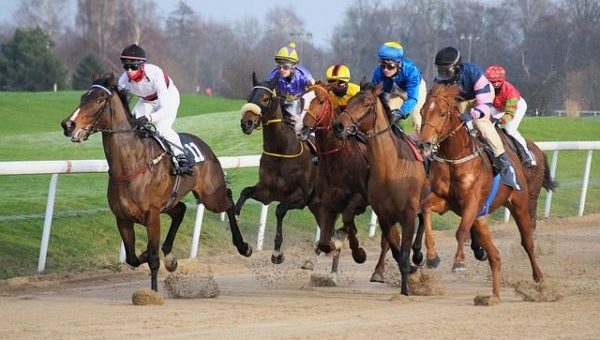 It’s been a big week for gambling. The expansion Vegas Golden Knights – home team of the Las Vegas sports books – continued hitting blackjack on their way to the Stanley Cup Final.
It’s been a big week for gambling. The expansion Vegas Golden Knights – home team of the Las Vegas sports books – continued hitting blackjack on their way to the Stanley Cup Final.
And, in a U.S. Supreme Court ruling, the ban on sports wagering outside Nevada was struck down. Now states can allow legal spots betting at licensed outlets. (How much online betting will follow is still up for debate.) It’s a one-two punch with the anticipated legalization of marijuana that bankrupt governments hope will replenish their coffers.
There’s considerable excitement in the gambling community and plenty of questions about how this will affect the North American pro sports leagues upon which they rely. Much of the speculation centres on how the leagues – now freed from their puritan stance on the billions in illegal U.S. gambling that always existed – can monetize the tsunami of cash expected to roll in.
A brief glance at Britain shows how seamless the marriage between gambling and pro sports has become. Premier League football (soccer) teams prominently feature their sponsors in the gambling industry on their jerseys. Sideline and end-zone bet-shop advertising are ubiquitous. The TV networks’ broadcasts of the games are dominated by the gambling message.
National Basketball Association and National Hockey League teams have already added discreet advertising to their jerseys from conventional sponsors. So we can expect to see ads for casinos – and the money they bring – added to the home uniforms soon. This additional ad revenue means we’re not far from a $50-million athlete in the NBA, Major League Baseball or the National Football League.
One of the great concerns remains how such a close union between the games and the gambling will be monitored. Even with illegal gambling there have been a number of scandals concerning gamblers controlling referees or players. With so much more money to be made, the potential for mischief seems great. Even today, suspicious referee calls and player behaviour draw considerable controversy when they affect the line or the totals.
Most now feel that it will be easier to regulate such risk if it’s in the open. Anyone contemplating shaving points might think twice if it’s now a subject for halftime shows or play-by-play announcers.
One byproduct of the gambling will likely be a greater reliance on technology to officiate the sports. With so much scrutiny on the human element – and its vulnerability to gamblers – how long until MLB adopts the virtual strike zone for balls and strikes?
Until the NHL puts chips into pucks to help call goals and offsides?
Until the NFL creates a football that says when it’s been carried over the goal line or kicked between the goal posts?
Or the NBA syncs the 24-second clock to the ball or the basket rims?
Better to curse a machine than wonder about the fallibility of a human tasked with making calls that shift millions – maybe billions – in bets.
Finally, there’s the possible impact of this gambling on Canada’s betting schemes. If American sources across the border can suddenly offer better odds and payoffs to Canadians, how will that affect the sports gambling revenues for cash-strapped provinces? The rule of unintended consequences lurks.
* * *
It’s been interesting to see the sniping and resentment of some Canadian Football League players over the signing of quarterback Johnny Manziel by the Hamilton Tiger-Cats.
Put aside that the over/under for the former Heisman Trophy winner returning to Texas is likely week three of the CFL season.
Why would CFL players not want him to bring value to a league that – let’s be honest – lacks star power?
If Manziel is sincere about giving three-down football an honest go, he could do for the CFL what Doug Flutie did for the league. His success can legitimize the success of other players. For a few it might catapult them into the NFL. That means more money and attention. How’s that a bad thing?
And if he does the Vince Ferragamo thing and simply slinks away, what was lost?
Rien.
While American commentators spout off about why Johnny Football is a natural for the CFL, three-down football is a unique beast. Just because Manziel is mobile means little in a league where a sideline pattern can be a 30-yard throw. The route tree is challenging and different. The pace is accelerated.
Playing in adverse weather is another wild card. Flutie had his issues with early Canadian winters until he figured it out.
So let’s see what Manziel has. But giving him the freshman hazing is rube stuff.
Troy Media columnist Bruce Dowbiggin career includes successful stints in television, radio and print. A two-time winner of the Gemini Award as Canada’s top television sports broadcaster, he is also the publisher of Not The Public Broadcaster.
The views, opinions and positions expressed by columnists and contributors are the author’s alone. They do not inherently or expressly reflect the views, opinions and/or positions of our publication.


